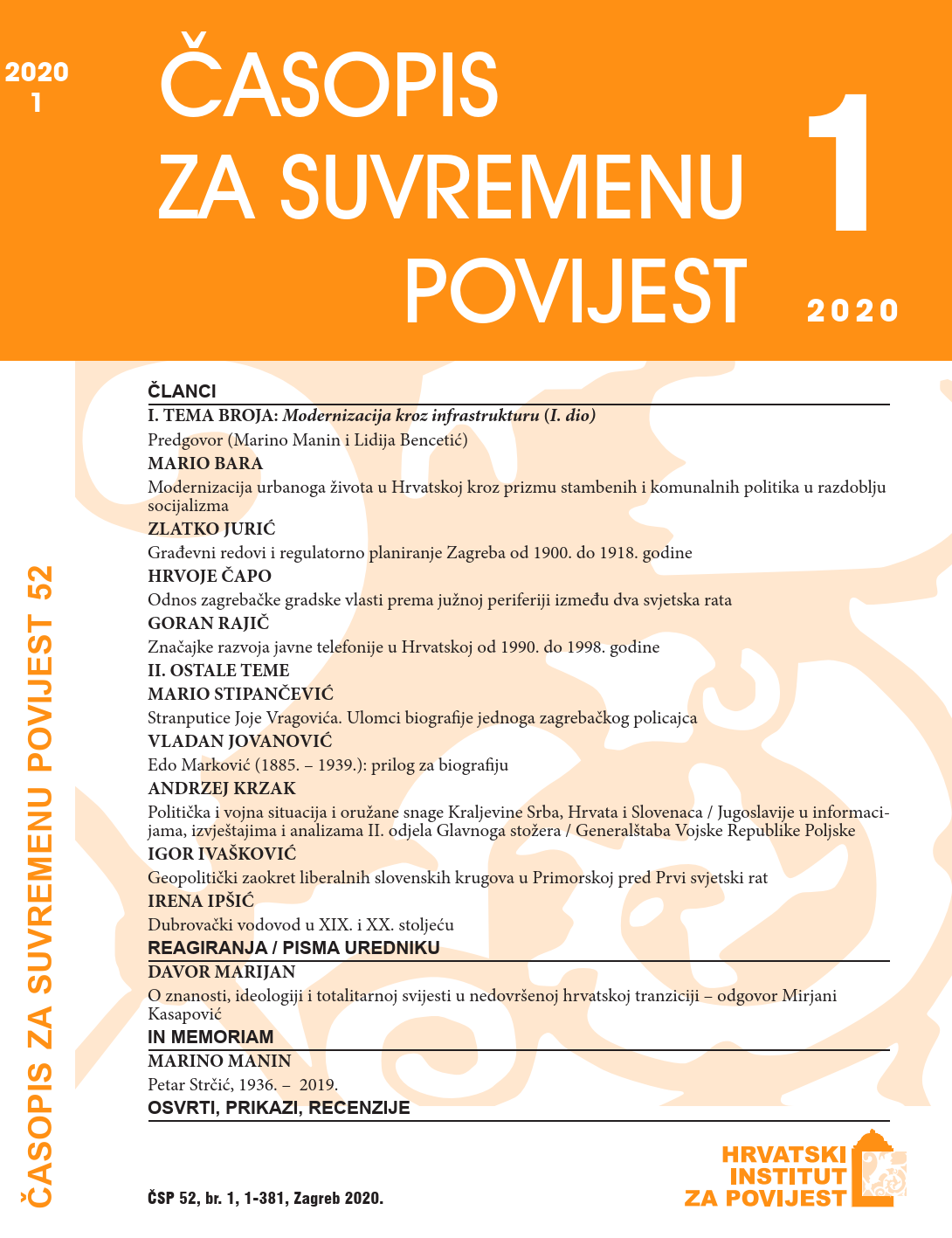Politička i vojna situacija i oružane snage Kraljevine Srba, Hrvata i Slovenaca / Jugoslavije u informacijama, izvještajima i analizama II. odjela Glavnoga stožera / Generalštaba Vojske Republike Poljske
The Political and Military Situation and the Armed Forces of the Kingdom of Serbs, Croats and Slovenes / Yugoslavia in the Information, Reports, and Analyses of the Management of Intelligence and Reconnaissance Intelligence of the Main Staff of the A
Author(s): Andrzej KrzakSubject(s): Diplomatic history, Military history, Interwar Period (1920 - 1939)
Published by: Hrvatski institut za povijest
Keywords: Management of Intelligence and Reconnaissance Intelligence; military attaché; Royal Yugoslav Army; military diplomacy; intelligence and information activities;
Summary/Abstract: The Kingdom of Serbs, Croats and Slovenes / Yugoslavia was not a major subject of the operational activities (main operational objective) of the Polish military intelligence. Nonetheless, due to the implemented and planned strategic projects related to national defence, assignments were made to collect data, primarily on the military potential of the country, its politics towards neighbouring states, and the possibility of selling Polish arms to it. There is no doubt that the leadership of Poland and the intelligence officers were interested in the secret expansion of the Yugoslav army and its political and military relations with Czechoslovakia and Romania within the frame of its obligations as part of the Little Entente. The analysed documents show that the Polish army saw Yugoslavia as a state with complicated internal relations that seeks to preserve the Versailles order and has numerous scholarly and cultural ties with Poland. On the other hand, they detected Yugoslavia’s sympathy for Russia, Czechoslovakia, and Germany as well as its numerous White Guard diaspora, which was seen as an element infiltrated there by the Bolsheviks, and this certainly also influenced the decision that the Kingdom of Yugoslavia should be included in the intelligence activities of the Management of Intelligence and Reconnaissance Intelligence (P2) in order to evaluate its politics and military capabilities.
Journal: Časopis za suvremenu povijest
- Issue Year: 52/2020
- Issue No: 1
- Page Range: 165-192
- Page Count: 28
- Language: Croatian

